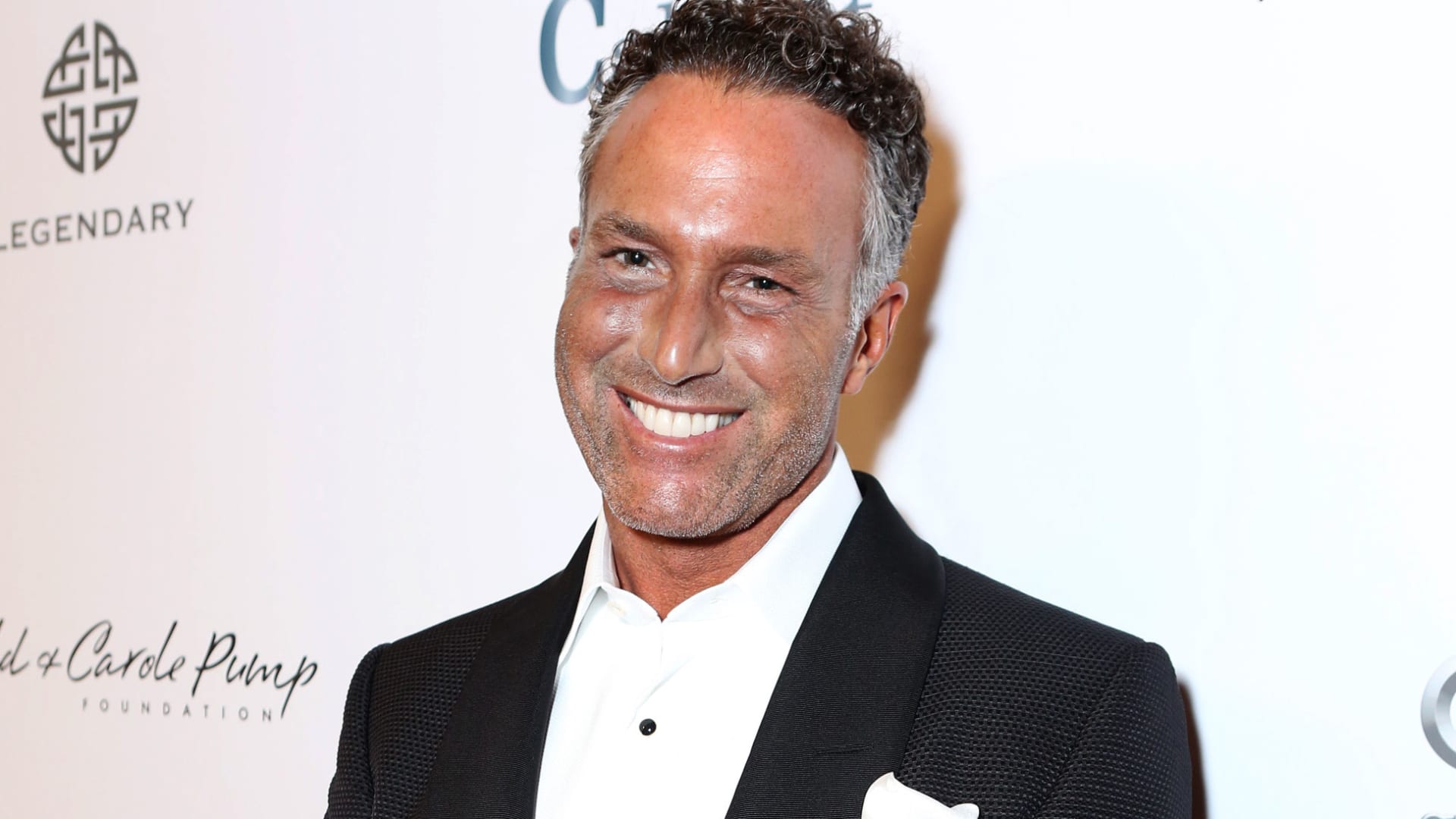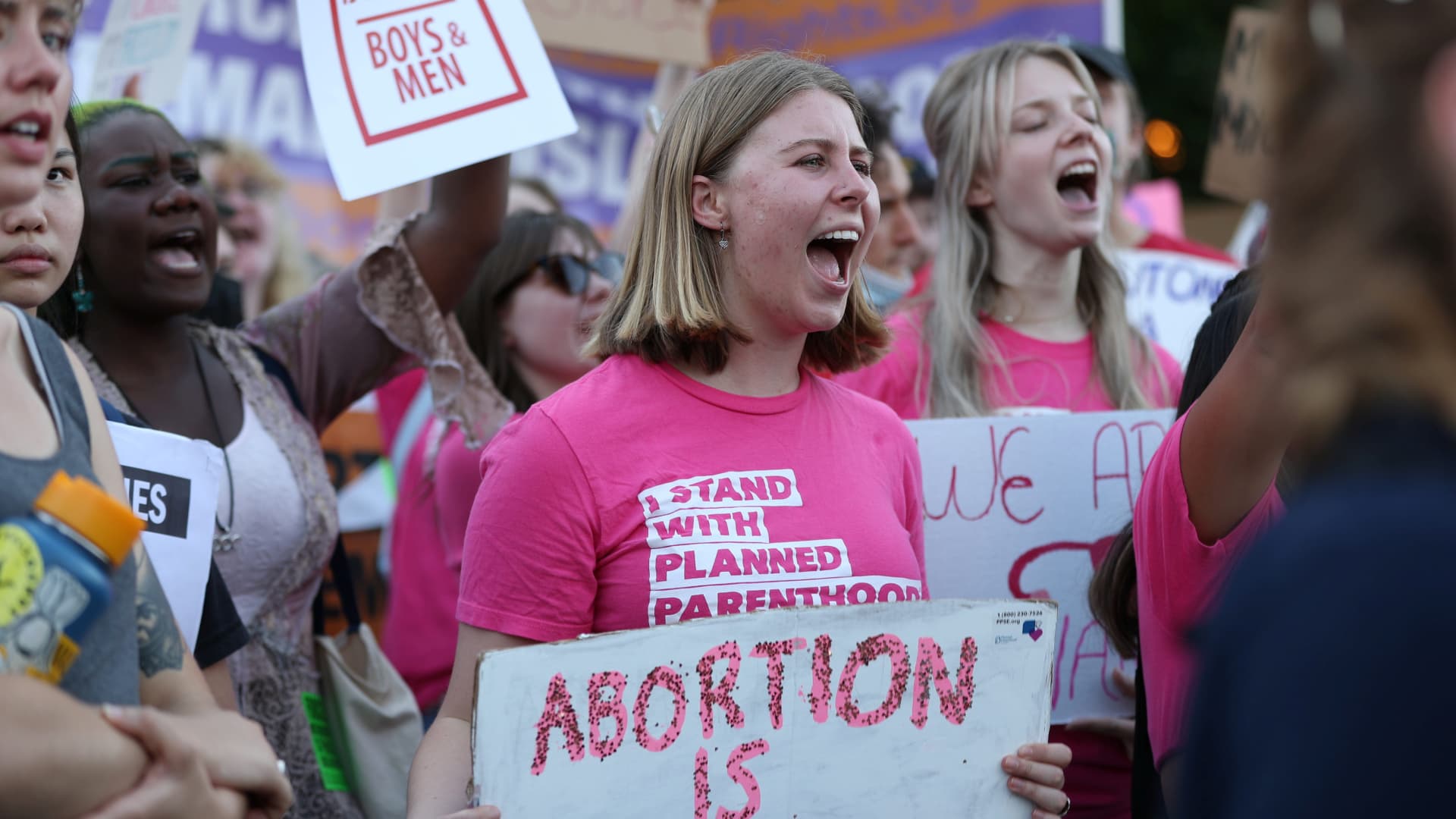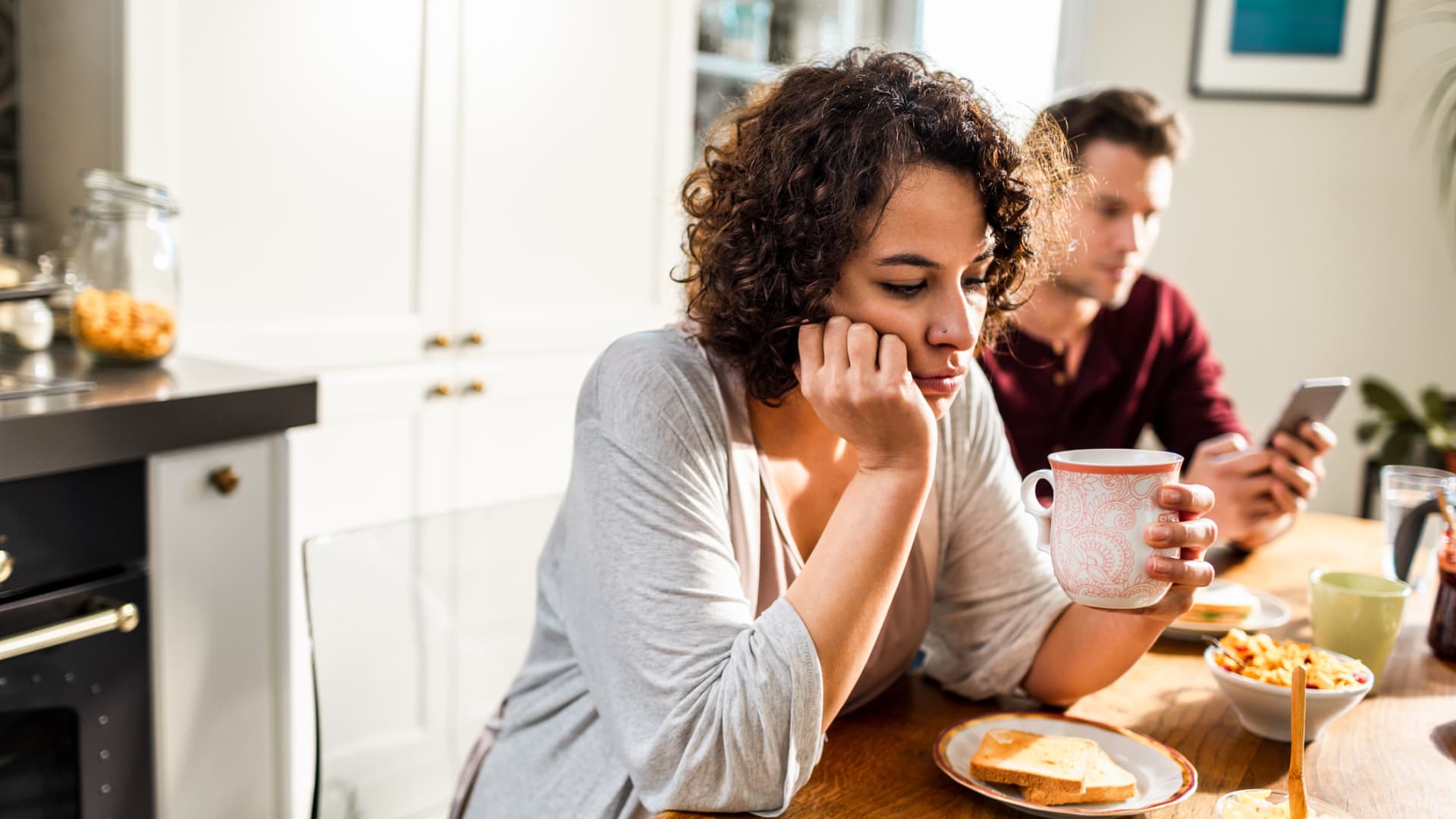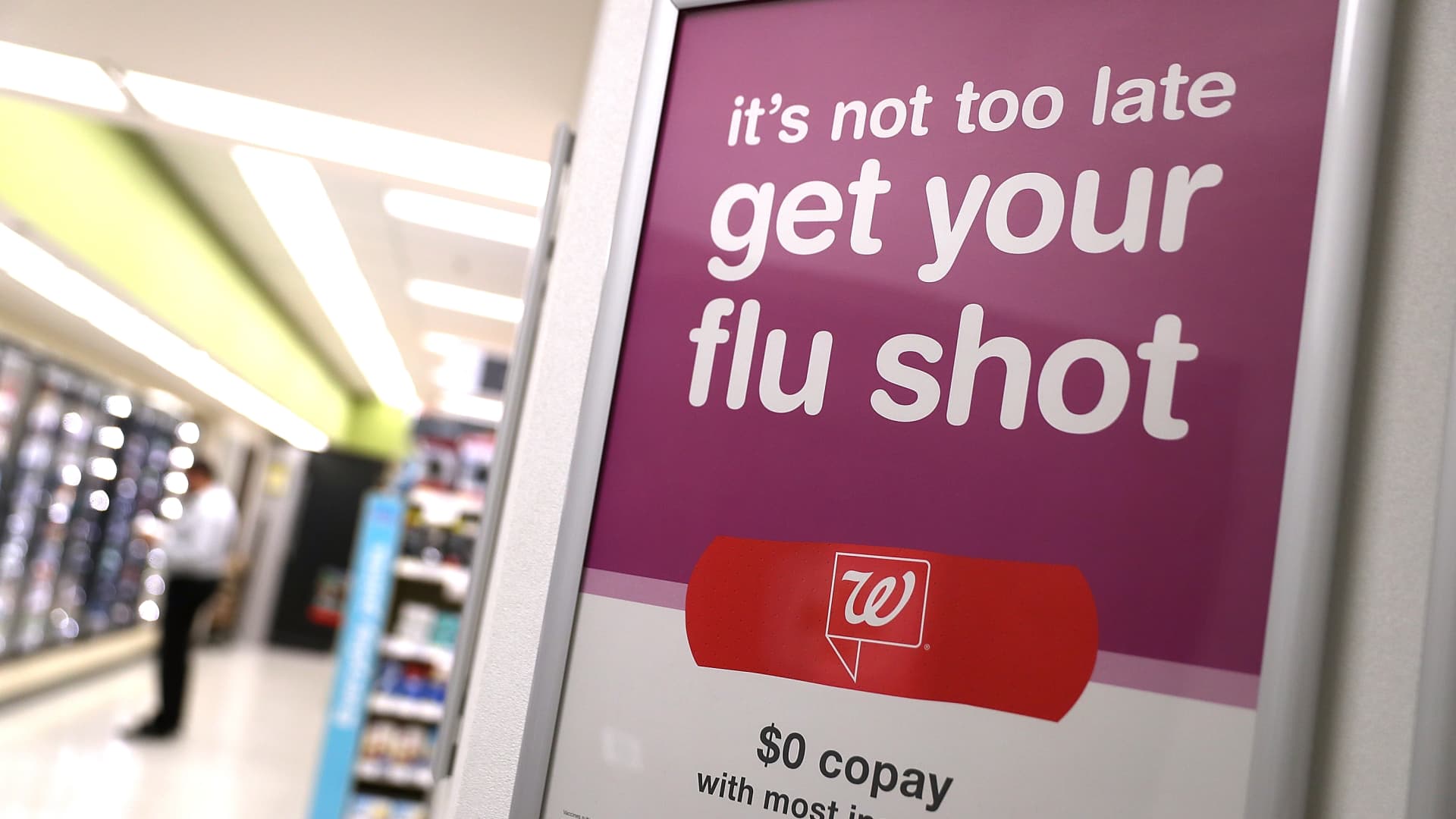People should stop taking Ozempic, Wegovy obesity drugs before surgery, doctors group says
Patients taking diabetes and weight loss drugs during anesthesia may be at increased risk of serious complications like nausea and vomiting, the ASA said.
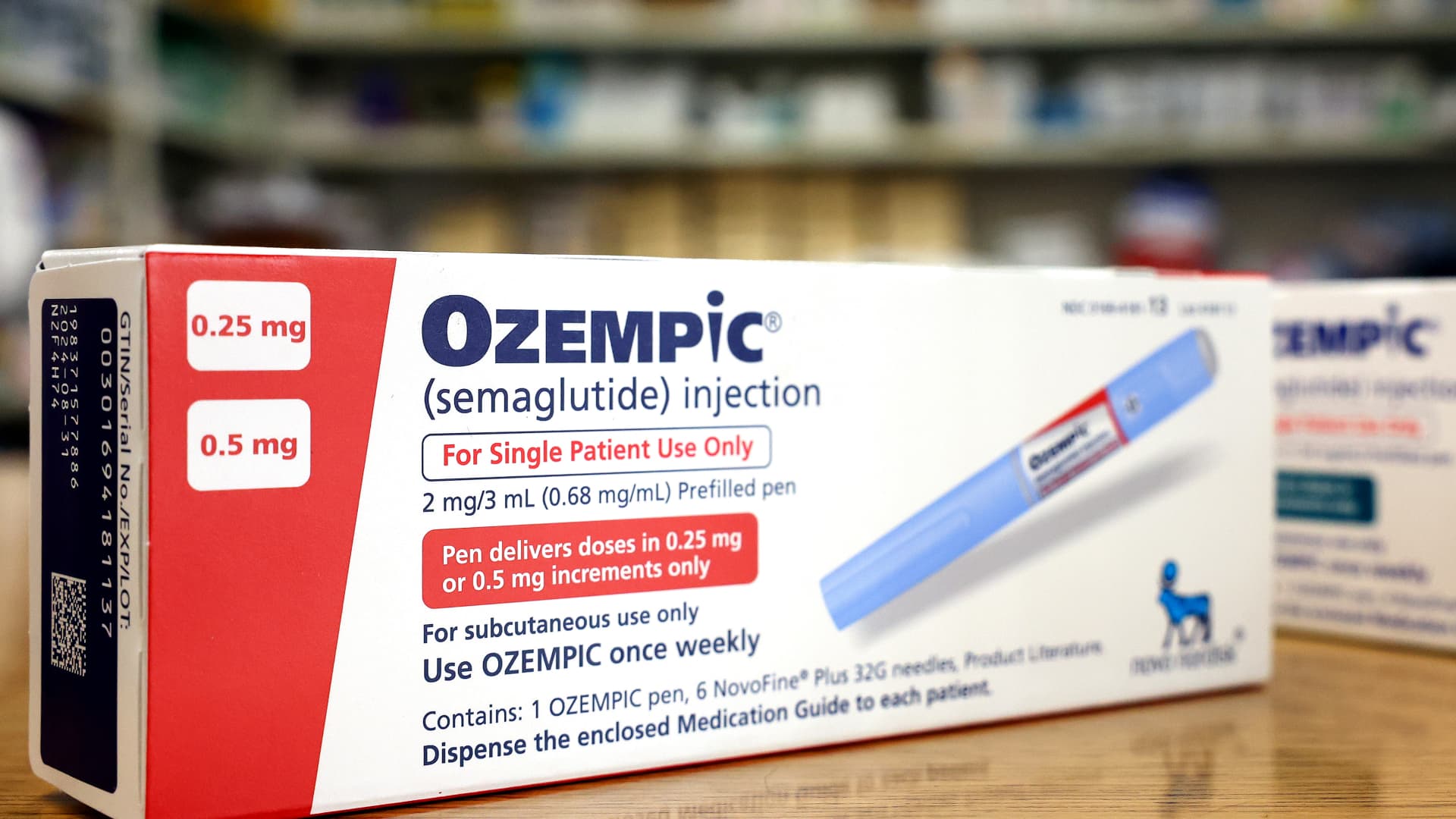
In this photo illustration, a box of the diabetes drug Ozempic rests on a pharmacy counter on April 17, 2023 in Los Angeles, California.
Mario Tama | Getty Images
People on diabetes and weight loss drugs such as Novo Nordisk's Ozempic and Wegovy should stop taking them before having elective surgery to reduce the risk of serious health complications, a prominent group of doctors said.
The American Society of Anesthesiologists, an organization of more than 53,000 physicians engaged in anesthesiology, released interim guidance with that suggestion late Thursday.
The guidance aims to help doctors manage patients on those drugs who are scheduled to undergo elective surgeries, which are non-emergency procedures such as kidney stone removal, joint replacement and cosmetic surgery.
The ASA said the guidance reflects concerns related to delayed stomach emptying, or when food sits in the stomach for longer than usual. That's one effect of diabetes and weight loss drugs, which mimic a hormone produced in the gut called GLP-1 and ultimately suppress a person's appetite.
Delayed stomach emptying may cause patients undergoing anesthesia to experience nausea, vomiting and aspiration, which is when a person accidentally breathes food into their lungs rather than swallowing it, according to the ASA.
That's why patients are typically required to fast before undergoing anesthesia for procedures.
The ASA has received anecdotal reports from across the U.S. that patients taking the drugs during general anesthesia and deep sedation may be at increased risk of those "serious" complications, the group's president, Dr. Michael Champeau, said in the guidance.
Ozempic and Wegovy are already associated with side effects like diarrhea and constipation.
But Champeau acknowledged that there is still a lack of scientific data on how exactly anesthesia interacts with those drugs, which are also known as GLP-1s.
Each day, about 60,000 people nationwide receive general anesthesia, or medication administered for pain relief during surgeries and other procedures.
It's unclear how many people take GLP-1 drugs each day, but their popularity skyrocketed over the last year for being weight loss "miracles." Now, Novo Nordisk's Ozempic and Wegovy are plagued by nationwide shortages. They also face growing competition from similar treatments like Eli Lilly's Mounjaro.
Under the ASA's guidance, people taking GLP-1 drugs on a daily basis should skip treatment on the day of elective surgery.
Those taking GLP-1s weekly should stop treatment a week before the scheduled surgery, the group said.
Prior to surgery, doctors should consider consulting with an endocrinologist for guidance on patients who take GLP-1s for diabetes.
The group also said doctors should consider delaying a patient's procedure if that person experiences nausea, vomiting or abdominal bloating or pain on the day of their scheduled procedure.
If a patient has none of those symptoms but did not stop using GLP-1s before the surgery, doctors should consider using ultrasound to check if they have a "full stomach."

 Konoly
Konoly 








